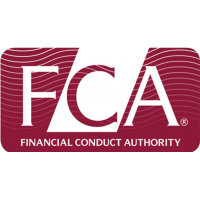
The regulator published a discussion paper on Monday, which outlined the various approaches it is considering for charging new applicants who want to enter to the regulated industry.
It said it wants to ensure that authorisation fees are structured in a way to support competition and make it easier for firms to enter the market as well as expand in it.
The ideas floated, initially focused on the ‘A fee block’ housing advisers, include charging new entrants the whole cost of their authorisation; splitting the charges between the new entrant and the other fee payers; or only charging the fee-paying industry while waiving the cost for the firm wanting to get authorised.
Currently the regulator employs the split approach, charging the industry for some of the costs that are not recovered directly from the applicants, through the periodic fees.
The FCA estimates reducing the cost to the entrant would have only a “marginal impact” of the periodic fees and would not affect the 40% of firms that pay the minimum £1,000 fee.
“Even if we were to charge no application fees at all, the effect would be to raise the periodic fees paid by firms above minimum fee thresholds by only 0.4%,” it said.
Alternatively, if it were to levy the whole cost on the applicants, “the benefit for existing firms would be almost equally small”, reducing periodic fees by just 0.8%, it suggested.
The FCA said the total cost of undertaking the ‘chargeable’ activities of its ‘gateway’ functions was £7.9m. It took £2.7m from authorisation and VoP application fees in 2013/14, the rest was levied on the industry.
The regulator is now asking firms how they feel about splitting the costs in a variety of ways.
The FCA is also considering revising the application fees, saying they have been “eroded by about a third” (36%) through inflation since 2001 and “do not reflect our actual processing costs”.
It suggested to introduce a ‘very straightforward’ fee for the simplest cases, such as applications from appointed representatives (ARs) who are seeking full authorisation.
However, the FCA said it will not consider taking extra money for fast-tracking applications – as proposed by some firms – as it does not consider it to be “realistic or fair”.
Suggested scenarios include setting the ‘very straightforward’ category on a level with the lowest consumer credit application fee and reduce the ‘straightforward’ category to the mid-level consumer credit fee, or to hold the ‘very straightforward’ fee to the current ‘straightforward’ level and look at different ways of adjusting the higher categories.
The FCA will not scale non-consumer credit fees according to the size of projected business, as this was not necessary in the intermediary market, it said.
The regulator also said it will not commit to maintaining fees over long periods of time and instead suggested to set the fees for a certain period such as three years or alternatively raise them in line with inflation.
The regulator’s current ‘moderately complex’ and ‘complex’ fees have remained unchanged since 2001 and its ‘straightforward’ fees since 2004.
The FCA is inviting industry views until 22 August 2014. It will issue proposals for consultation in October, with a view to introducing the new structure from 1 April 2015.

















